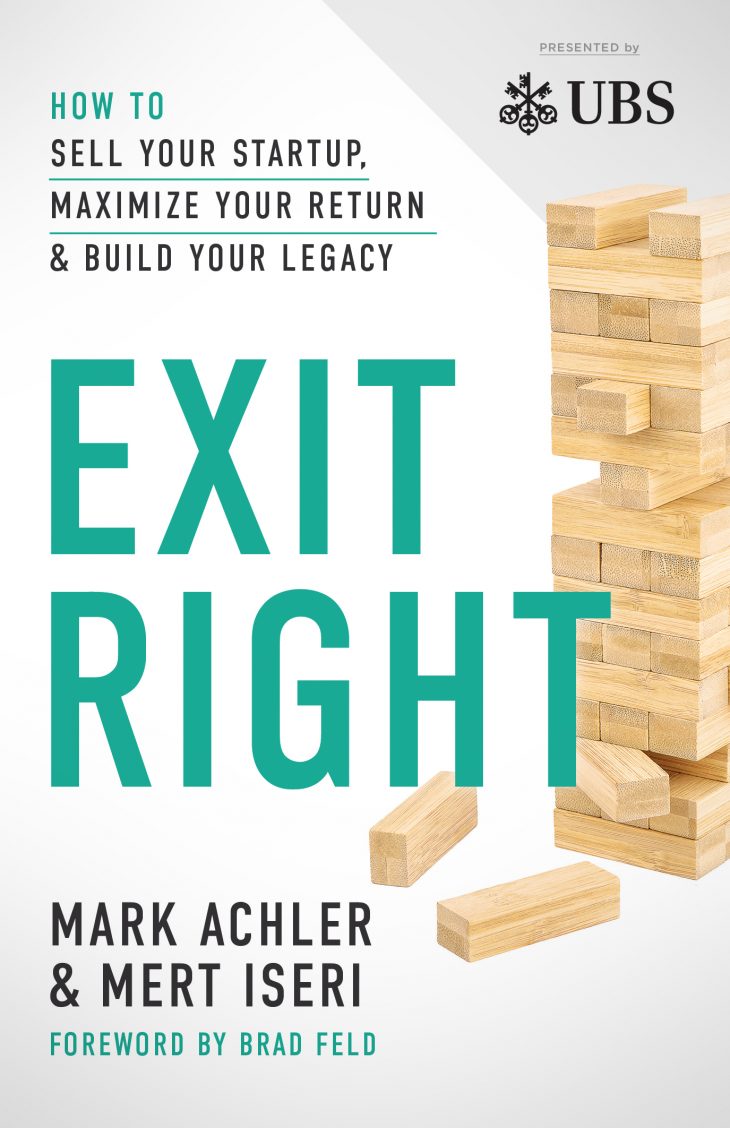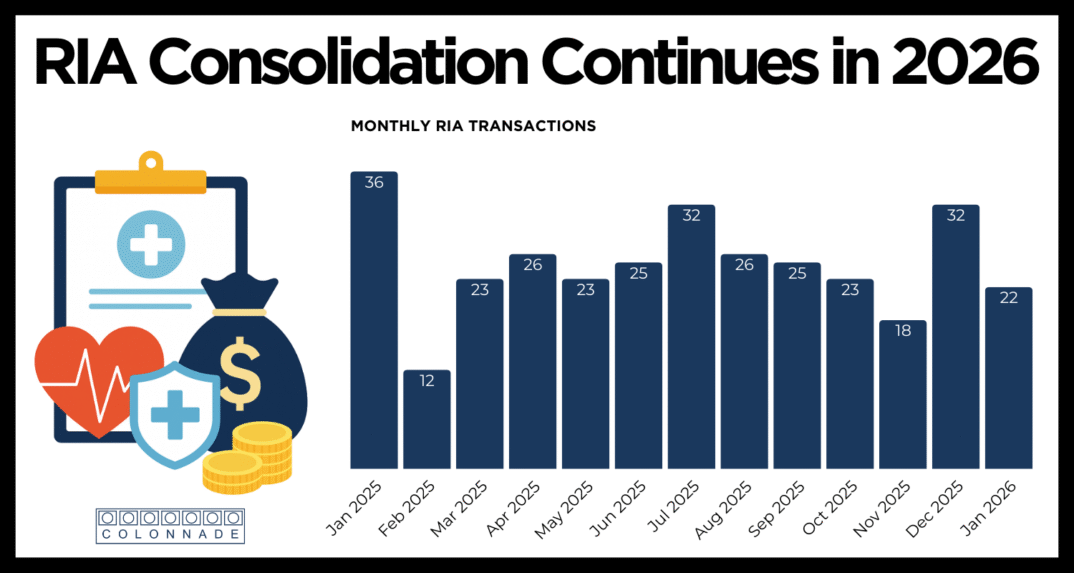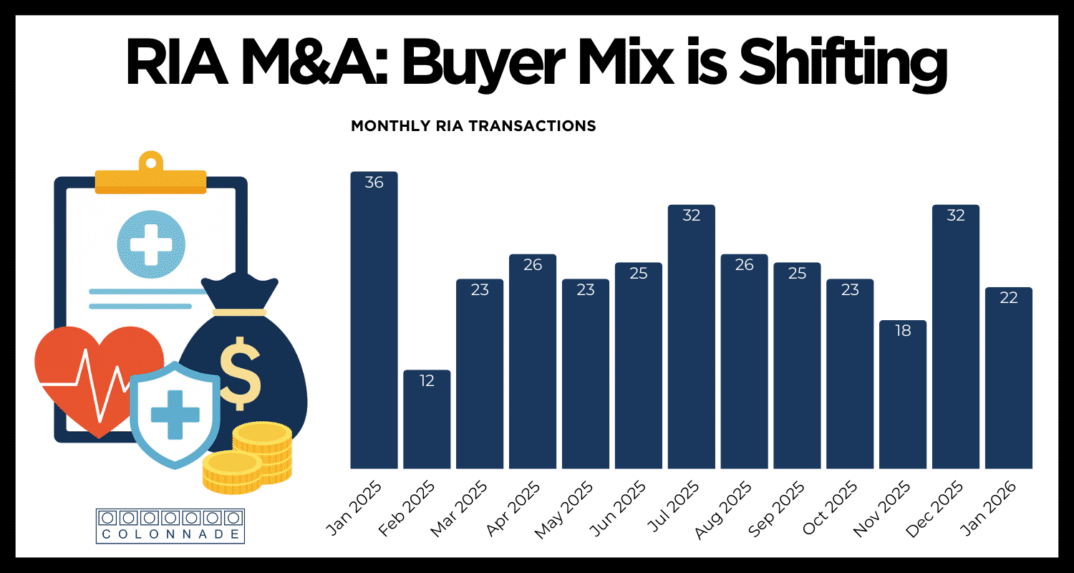Schedule Exit Talks as Part of your Regular Board Meetings

We at Colonnade are excited about a potential “new norm” with clients where ongoing communications about the exit strategy (when a company will be sold to a buyer) are part of the normal course of board meetings.

We recently interviewed Mark Achler and Mert Iseri, authors of the excellent book Exit Right: How to Sell Your Startup, Maximize Your Return and Build Your Legacy. They recommend, and we agree, that all companies have an annual “Exit Talk” to act as a standardized framework that ensures continuous alignment on exit expectations and timing.
Once the internal communication is in place, founders benefit immensely from keeping the conversation going to ensure alignment. From the book:
The foundation of all trust is open communication. We all know this instinctively, but we tend to forget it when we get busy. We prioritize other issues and forget to stay in regular communication with the important stakeholders in our organization. But you need to talk about selling your company with your stakeholders often and consistently. Getting acquired is not a bad thing, after all—a successful exit is the desired outcome for most startups. What hurts is when the acquisition is a surprise—a distraction from the shared commitment everyone is there for.
Start a conversation about selling too early, and the shareholders will doubt the long-term commitment of the leadership. Too resistant to a sale, and the shareholders will grow frustrated with their expectations for a positive return. This is a tough balancing act, but it should not prevent you from discussing an exit at all.
Unfortunately, the conventional wisdom is for founders to virtually never discuss exits with shareholders. It is frowned upon to talk about the sale—investors expect the founders to constantly be focused on building an even bigger company until they are ready to cash out. The challenge is that if the founders are bringing up the sale conversation, it looks like they are interested in selling the company before the maximum value can be achieved. In other words, the board will question the long-term commitment of the CEO if the conversation comes up prematurely.
Founders need to establish the expectation with their boards that once a year, the group will add an agenda item to the meeting related to the sale. It is simply a temperature check on long-term strategy, potential strategic buyers, and time horizons. This will allow you to build rapport, continue the process of alignment, and establish the trust you need to have a FAIR deal. The exit is one of the most important moments in the life of a startup for the founders and investors alike. A conversation filled with anxiety, doubt, and mistrust serves no one. Carving out intentional space to have these conversations in an open and honest fashion on a periodic basis will improve outcomes for all parties.
The secret to board (and shareholder) buy-in is consistent communication on expectations and strategy to achieve objectives. This is where the CEO can withdraw from the trust bank that they have been putting the savings in over the years with their consistent communication.
The goal of these conversations is not to kick off a sale but to ensure there is alignment around key questions:
• What is our threshold walk-away price?
• What is the fund timeline to return proceeds for limited partners?
• What objectives need to be accomplished for existing investors to further capitalize the company?
• Who are the key buyers, old and new? With whom should the CEO be building relationships in those companies?
• What is the key performance metric those buyers care about? What is the strategy to optimize that further?
We call this the Exit Talk: a key ingredient for a successful exit and effective governance. It is also an opportunity for a CEO to educate their shareholders and board on what matters. These are the moments to build shareholder confidence, define what the possible exit may look like, and execute on that premise.
It is true that if a founder never mentions a sale for eight years and suddenly starts bringing up the topic to a board, it signals a lack of energy to win even bigger. The reverse is also true: VCs are managing a fund with return expectations. A founder unaware of the dynamics of the investors and their timeline doesn’t help the anxiety surrounding the sale.
Instead of fueling the awkwardness of the exit topic by staying silent, we are putting forward a new norm that we believe the entire industry should adopt: the Exit Talk.
Why is there a stigma around talking about exits?
Company owners may be afraid. They may be concerned that if they bring up the topic of an exit, their board and their investors are going to think their heart’s not in it.
Why are exit discussions secretive?
It is a very small universe of folks within a company that knows that a transaction is imminent. It’s rarely discussed openly among the senior leadership team until late in the game.
We believe that company leadership can be more proactive. How? Once a year, have a regularly scheduled Exit Talk where the CEO, without fear of being perceived as their heart’s not in it, can talk about the exit.
By having this regular board meeting, you gain the luxury of time.
Imagine having 18 months or two years to gather information and understand the strategic directions and opportunities of industry leaders in potential buyer companies.
You have the luxury of time to ask questions like:
Who’s going to be the most likely acquirer?
Is it going to be a financial buyer? A strategic buyer? A SPAC? And what are they looking for?
How can we align our KPIs now with the future potential buyer’s KPIs?

Having a long-term exit strategy gives you the luxury of time to get your intellectual property in order, make sure that every single employee has a signed agreement, and make sure that trademarks and patents are filed appropriately. You can get your data room pristine. If you have the luxury of time, you can optimize how you present your business. Take careful time to choose your investment bankers (of course, Colonnade would love to tell you more about how we partner with companies long-term) and attorneys who really are going to represent you well.
Having this conversation doesn’t mean that you’re ready to sell, but it gives you the opportunity to plan for your exit better.
If you’d like to listen to the full interview with Jeff Guylay, Mert Iseri, and Mark Achler, please click here.
We repeatedly say that the sooner you start the process, the better. Please reach out to Gina Cocking or Jeff Guylay to set up a discovery call that will help you think through your best next steps.


